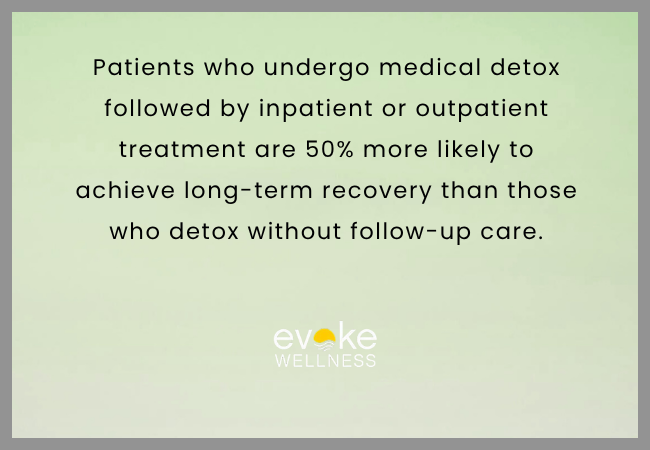Choosing to break free from substance use is a courageous first step toward a healthier and more meaningful life. For many, detoxification—or detox—is the first part of that journey. But once you’ve made the decision to stop using drugs or alcohol, a critical question arises: Should you detox at home or seek professional help?
While at-home detox may seem more convenient or private, it is rarely the safest or most effective option. Substance withdrawal can lead to serious physical and psychological symptoms that require medical supervision, especially for individuals who have been using for an extended period or who are dealing with co-occurring mental health conditions. In this blog, we’ll explore the realities of detoxing at home, the risks involved, and why medically supervised detox at a licensed treatment center is often the best path forward.
The Appeal of At-Home Detox
The idea of detoxing at home often appeals to those who want to avoid the stigma of entering a facility or who worry about taking time off from work or family responsibilities. There’s also the perception that home offers a more comfortable or familiar setting, which may reduce initial anxiety.
However, these benefits can be misleading. Detoxing without medical support may place individuals at significant risk, not just physically but emotionally. Detox is not simply about stopping drug or alcohol use—it’s about managing the intense symptoms and complications that can arise when the body begins to rid itself of toxic substances.
Understanding the Risks of At-Home Detox
The human body and brain adapt to the presence of drugs or alcohol over time. When these substances are suddenly removed, the nervous system can become unstable, leading to withdrawal symptoms that range from uncomfortable to life-threatening. Common risks of unsupervised detox include:
-
Seizures: Particularly with alcohol, benzodiazepines, and certain other substances, sudden cessation can cause seizures.
-
Delirium Tremens (DTs): A severe form of alcohol withdrawal that can result in confusion, hallucinations, fever, and death if untreated.
-
Dehydration and Electrolyte Imbalance: Excessive vomiting, sweating, and diarrhea can quickly lead to dangerous fluid loss.
-
Cardiac Events: Withdrawal from stimulants or opioids can affect heart rate and blood pressure, triggering cardiovascular complications.
-
Mental Health Crises: Depression, anxiety, suicidal thoughts, and psychosis are common during withdrawal and can escalate rapidly without clinical intervention.
In addition to these medical concerns, detoxing at home often lacks the accountability and emotional support needed for someone in early recovery. Without professional guidance, individuals are more likely to relapse especially when withdrawal symptoms become unbearable.
When Is Detox Especially Dangerous at Home?
While at-home detox is never the recommended path, it becomes especially dangerous under certain conditions, including:
-
A history of severe substance use
-
Previous withdrawal complications
-
Co-occurring mental health disorders
-
Polydrug use (use of more than one substance)
-
Lack of a sober support system at home
-
Chronic health conditions such as heart disease, liver issues, or diabetes
These factors significantly increase the chances that detox will lead to medical emergencies or psychological crises that cannot be managed safely in a home environment.
What Happens in a Medically Supervised Detox?
A professional detox center provides 24/7 medical oversight, clinical support, and a structured, safe environment. Upon intake, clients receive a comprehensive assessment that looks at their substance use history, mental and physical health, and social circumstances. Based on this evaluation, a personalized detox plan is created that may include:
-
Medications to ease withdrawal symptoms and prevent complications
-
Nutritional support to restore physical health
-
Hydration therapy and monitoring of vital signs
-
Psychiatric support to manage co-occurring disorders like depression or anxiety
-
Case management to help coordinate the next steps in treatment
In these settings, safety and comfort are prioritized so clients can begin healing without the chaos or unpredictability of withdrawal. And just as important, professional detox lays the foundation for the next stages of recovery—be it residential treatment, outpatient care, or ongoing therapy.
At our Residential Treatment Center in Massachusetts, detox is integrated into a broader continuum of care, ensuring clients receive the right level of support as they move forward.
The Psychological Benefits of Choosing Professional Detox
One often-overlooked element of professional detox is the sense of structure and emotional security it provides. Knowing that trained medical staff are nearby, that your symptoms will be managed, and that you won’t go through it alone can reduce fear and promote mental clarity.
Detox is not just about the physical process—it’s also the mental shift from surviving addiction to actively choosing recovery. Being in a professional environment allows clients to begin this shift with intention and support. For those who are struggling with both substance use and mental health issues, starting at a licensed Mental Health Treatment Center in Massachusetts ensures that both areas are addressed simultaneously and effectively.
Why At-Home Detox Often Leads to Relapse
Even if someone successfully completes detox at home, the journey is far from over. Without ongoing treatment and therapy, the chances of relapse are extremely high. Detox addresses the physical aspect of addiction, but it does not resolve the emotional pain, trauma, or behavioral patterns that often drive substance use.
In a medical detox setting, clients are immediately connected to therapy, peer support, and recovery planning. Whether it’s transitioning into an Intensive Inpatient Program in Massachusetts or engaging in long-term relapse prevention, professional care significantly boosts the odds of long-term success.
Choosing Safety, Choosing Life
Detox can be life-changing—but only when it’s done safely. Trying to manage withdrawal alone is a gamble with your physical and mental health. In contrast, professional detox centers provide medical care, therapeutic support, and a smooth pathway into sustained recovery.
For individuals who are concerned about comfort and privacy, some centers offer high-end amenities that bring peace of mind. At a Luxury Rehab Center Massachusetts residents can receive top-tier medical care while enjoying surroundings that reduce stress and encourage healing. You don’t have to do this alone—and you shouldn’t have to.
Why Choose Us?
Choosing the right detox program is not just about managing withdrawal—it’s about investing in your future. Our team brings years of experience in addiction medicine and mental health treatment, helping clients move safely through the earliest, most vulnerable days of recovery. From the moment you arrive, you’re treated with respect, compassion, and dignity.
We recognize that each person’s journey is unique. That’s why we begin with a thorough assessment, followed by a tailored plan that includes medical supervision, emotional support, and planning for long-term care. We’re not just helping you stop using—we’re helping you start living.
Our facilities offer a peaceful, secure environment, far removed from the stressors and triggers of daily life. Whether you’re in need of short-term stabilization or seeking a full continuum of care, we provide access to comprehensive programs that support your body, mind, and spirit. As one of the leading Drug and Alcohol Detox Centers in Massachusetts, we are committed to helping you start your recovery journey with confidence and support.
Conclusion
While the idea of detoxing at home may seem appealing at first, the risks far outweigh the potential benefits. Withdrawal is a medically complex process that can quickly become dangerous without professional intervention. At-home detox lacks the supervision, structure, and support that make recovery possible—and sustainable.
On the other hand, seeking help from a professional detox program offers safety, expert care, and a pathway into meaningful long-term recovery. For those ready to take that first step, finding the right treatment center is key. As one of the trusted Medical Detox Program Treatment Centers in Massachusetts, we are here to provide you with the medical care, emotional guidance, and long-term support you need to begin again.
Your life is worth protecting. Your future is worth fighting for. And the right help is just a phone call away. Call us today at 866.931.6429 and start your recovery with the strength and safety you deserve.
Frequently Asked Questions (FAQs)
Is it safe to detox from drugs or alcohol at home?
Detoxing at home can be unsafe, especially with severe addictions or co-occurring health issues. Medical supervision is recommended to manage withdrawal symptoms and reduce risks.
What are the dangers of detoxing without medical help?
Unsupervised detox can result in seizures, dehydration, hallucinations, cardiac issues, and mental health crises. Medical oversight is crucial for safety and comfort.
Can I detox at home if I’ve only been using substances for a short time?
Even short-term use can lead to dangerous withdrawal, especially with alcohol or opioids. Only a medical assessment can determine whether detoxing at home is safe.
What does a professional detox center offer that home cannot?
Professional centers offer 24/7 monitoring, medication management, emotional support, and care for co-occurring mental health conditions—none of which are available at home.
How long does medical detox take?
Detox duration varies by substance and individual health factors. It can last from a few days to over a week, followed by continued care through residential or outpatient programs.





